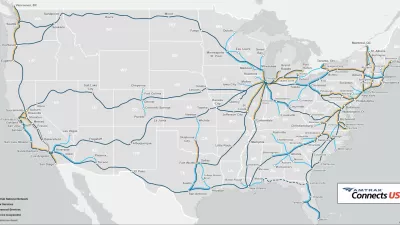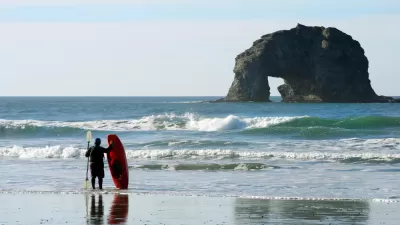Americans are more likely to relocate to places where residents share their politics. One man is making a business out of helping conservatives move to conservative districts.

Paul Chabot is an entrepreneur, and his business is moving conservatives into more conservative neighborhoods. Like the founder of Hair Club for Men, Chabot shares his clients' experience. He's not just the founder of Conservative Move; he personally moved from California's Inland Empire to McKinney, Texas, in hopes of finding like-minded people and a local government that would enact policies consistent with his beliefs. "They would give more rights to an illegal immigrant rather than treat their own a lot better," Chabot tells Emily Badger of the New York Times.
The idea of political sorting is not new. Bill Bishop's work on the subject speculated on how like-minded people could increase partisanship and make local elections less competitive. Badger explains that while movers often don't think of their relocations as political, they are more likely to move or change their addresses to "congressional districts that [match] their self-reported ideology."
FULL STORY: Political Migration: A New Business of Moving Out to Fit In

Maui's Vacation Rental Debate Turns Ugly
Verbal attacks, misinformation campaigns and fistfights plague a high-stakes debate to convert thousands of vacation rentals into long-term housing.

Planetizen Federal Action Tracker
A weekly monitor of how Trump’s orders and actions are impacting planners and planning in America.

San Francisco Suspends Traffic Calming Amidst Record Deaths
Citing “a challenging fiscal landscape,” the city will cease the program on the heels of 42 traffic deaths, including 24 pedestrians.

Adaptive Reuse Will Create Housing in a Suburban Texas Strip Mall
A developer is reimagining a strip mall property as a mixed-use complex with housing and retail.

Study: Anti-Homelessness Laws Don’t Work
Research shows that punitive measures that criminalized unhoused people don’t help reduce homelessness.

In U.S., Urban Gondolas Face Uphill Battle
Cities in Latin America and Europe have embraced aerial transitways — AKA gondolas — as sustainable, convenient urban transport, especially in tricky geographies. American cities have yet to catch up.
Urban Design for Planners 1: Software Tools
This six-course series explores essential urban design concepts using open source software and equips planners with the tools they need to participate fully in the urban design process.
Planning for Universal Design
Learn the tools for implementing Universal Design in planning regulations.
Heyer Gruel & Associates PA
JM Goldson LLC
Custer County Colorado
City of Camden Redevelopment Agency
City of Astoria
Transportation Research & Education Center (TREC) at Portland State University
Jefferson Parish Government
Camden Redevelopment Agency
City of Claremont





























